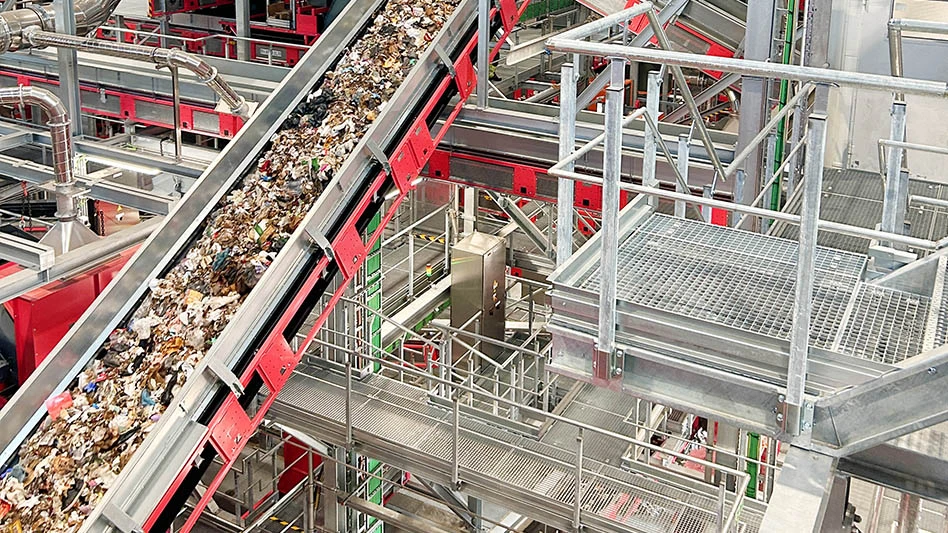
lumerb | stock.adobe.com
Ecobat has released its second annual sustainability report, highlighting the company's efforts to achieve progress through improving accountability and transparency, as well as codifying processes and baseline data necessary to ensure accuracy
The report was prepared in alignment with the Sustainability Accounting Standards Board (SASB) and Global Reporting Initiative (GRI), and the company’s sustainability management and reporting were guided by the United Nations’ Global Compact Sustainability Development Goals (SDGs).
“Since formalizing our sustainability programs in 2022, we have established goals that align with international standards and deployed business practices that support our commitment to striving towards exceptional lead, polypropylene and lithium-ion battery transportation, collection, recycling and distribution services,” Ecobat CEO Tom Slabe says.
RELATED: Ecobat names new CEO
Ecobat, based in Dallas, says its sustainability strategy prioritizes energy and greenhouse gas emissions, environmental protection, waste management, responsible materials sourcing and workforce health and safety.
The company reports a 99 percent recyclability rate, which it improved upon in 2023 through technology upgrades, fuel switching to achieve higher energy efficiency and lower carbon emission intensity, waste heat recovery systems and employee training. Ecobat cites its facility in Indianapolis, which analyzed its energy use and found it could modify its equipment to start-up procedures and install variable speed drives, resulting in a 5 to 7 percent reduction in energy consumption.
The report also includes Ecobat’s efforts to improve data collection and standardization monitoring to track global lead, cobalt and nickel releases into air, soil and water.
In 2023, Ecobat says it strove to improve waste management data collection of hazardous and nonhazardous waste, while assessing the potential outcomes of reduction initiatives. Its procedures to reduce and limit the waste it produces include internally sorting and disposing of waste according to waste streams; mapping of waste streams; reducing internal waste through material reuse, recovery or repurposing; and training employees to raise awareness of waste reduction and sorting.
According to Ecobat, its plant in Bazoches-les-Gallerandes, France, found that by isolating gypsum waste from lead paste during the electrolyte neutralization process, it could increase the capacity of its smelters by 5 percent. This resulted in an additional 3,000 tons of lead produced and an approximate 25 percent reduction in energy consumption and CO2 in its operations.
RELATED: LSQ enters financial partnership with Ecobat
Last year, Ecobat invested in a technology platform that is designed to provide end-to-end visibility of the supply chain, which the company says allowed for more responsible material sourcing. Ecobat says this onboarding and sanctions monitoring tool aims to ensure that partnerships align with organizational values and reviews partners prior to conducting business. According to the company, Ecobat partners are subject to ongoing monitoring and auditing based on their risk profile.
The report also highlights Ecobat’s employee health and safety initiatives, and says the company outperformed its 12-month rolling average blood lead improvement goals.
The report details the company’s plans to leverage artificial intelligence (AI) to optimize energy consumption and reduce greenhouse gas emissions; enable predictive maintenance aimed at reducing downtime, improving efficiency and extending the lifespan of equipment; and improve health and safety monitoring to better detect hazards, alert workers and prevent accidents and injuries.
“In 2023, we continued to rebound from macroeconomic headwinds of energy, inflation and workforce pressures to achieve an all-time lead production record, while not just maintaining, but improving, our dedication to sustainable business practices,” Slabe says. “We are proud of our progress and our leadership in the energy storage industry.”
Click here to download the full report.
Latest from Waste Today
- FZUK announces new commercial director
- Small-scale WTE partnerships
- Northwest Natural Renewables proposes Ohio landfill project
- US Senate backs reduced cuts to EPA
- Waste Connections announces Q2 results
- Returnity and Cosmoprof to address reusable bag waste
- SWANA releases report on aging WTE facilities
- New economic assessment reveals cost benefits of California’s SB 54





